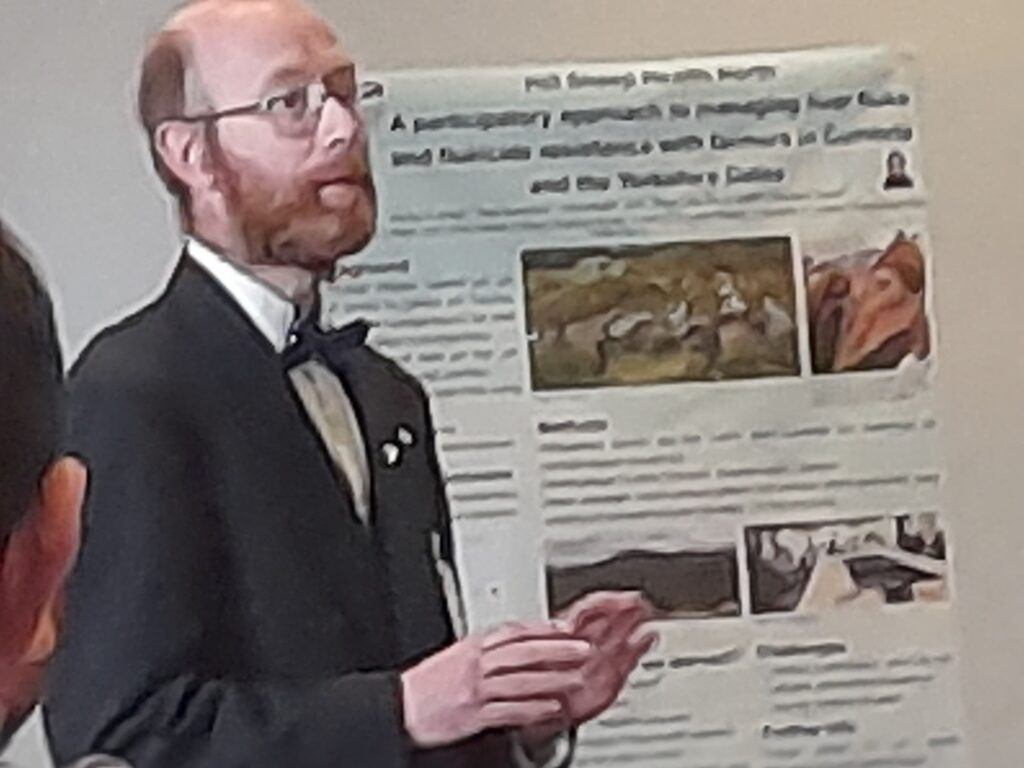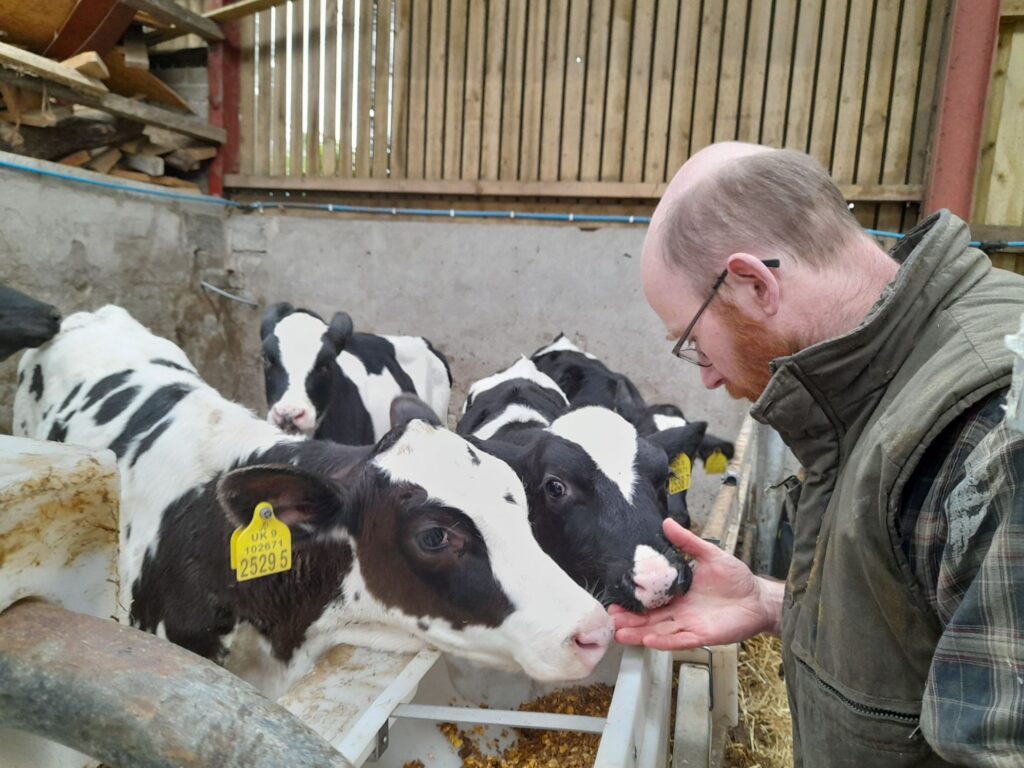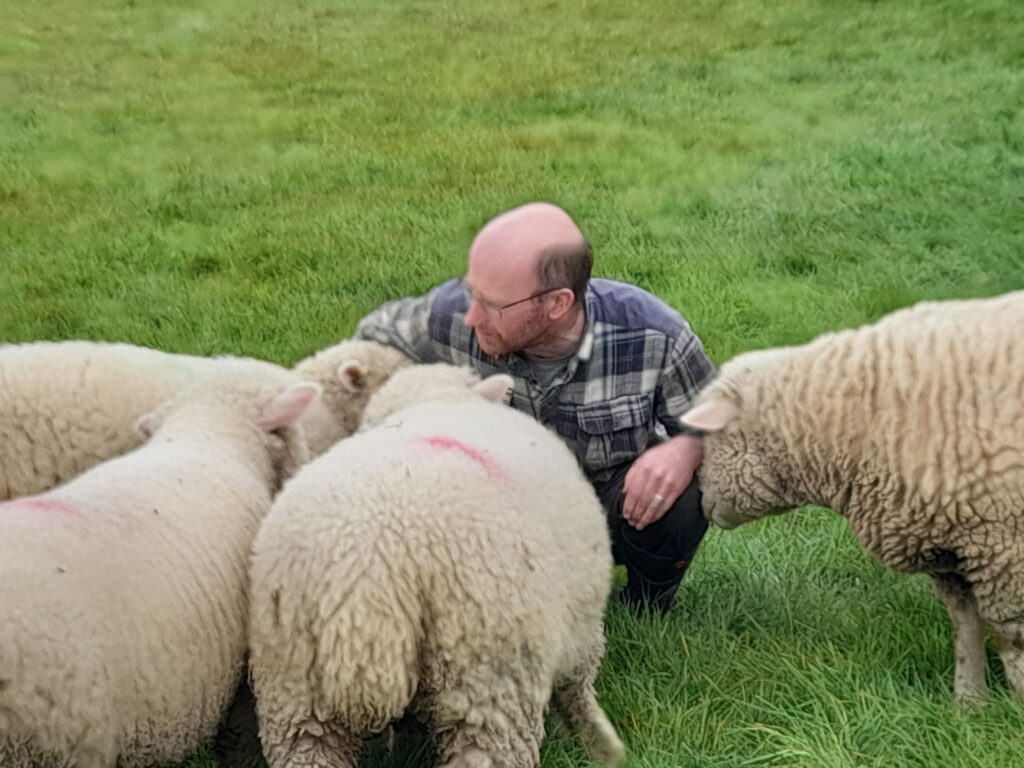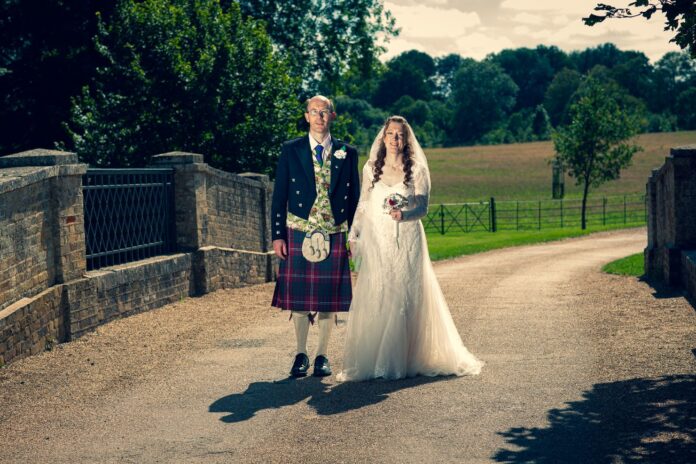That’s Farming editor, Catherina Cunnane, in conversation with Paul Crawford (46), Islandmagee, Larne, Northern Ireland, a Royal Veterinary College graduate, and sheep farmer, who currently works as a self-employed veterinary anaesthetist. He discusses his current role in the veterinary medicine field, advice for new grads and a desire to eradicate sheep scab.
“My parents were both teachers, but happily, they also loved farming, and some of my earliest memories are of seeing my dad strolling across the fields with a bale of hay on his back as he fed our beef cattle before he went off to teach maths!
My mum taught in the same senior school as a music teacher before she stopped work to have my three siblings and I.
We had pet dogs and several goats as I could not drink cow’s milk as a child, so my parents got goats so I could have their milk instead!
I have always loved working with and being around animals, but I did not start to seriously consider a career with them until I was about sixteen-years-old, after my GCSEs.
It was at that point I started to look at what qualifications I would need and weigh up if getting into vet college would be a real possibility for me. I have always been very practical like that.
Veterinary Medicine
I studied a Bachelor of Veterinary Medicine at the Royal Veterinary College (RVC), the University of London, from 1994 to 1998.
As soon as I visited the RVC for an interview, I decided on the RVC; everyone was so friendly and welcoming. As it is the oldest veterinary school in the English-speaking world, it has a long and proud history of academic, clinical and social excellence.
I moved straight into work at Glasgow Vet School, working in anaesthesia and critical care.
My role was a little different from the stereotypical new vet job, as I was working in a university teaching hospital. Although I had a lot of very experienced folk about, I also had responsibilities to supervise and teach the final year students.
Self-employed veterinary anaesthetist
Now, I am a self-employed veterinary anaesthetist currently working in Northern Ireland and across the UK.
Also, I have my own flock of sheep and am studying for a PhD in conjunction with Harper Adams University via distance learning, exploring medicine use in the Northern Ireland sheep flock.
I am passionate about anaesthetics and delivering the best care to my patients.
I am rather busy at the minute studying for my PhD which is fascinating but also rather time-consuming. Moreover, I would potentially like to do a postdoctoral study in sheep medicine or anaesthetics.
Equally, I am passionate about sheep in general and, specifically, eradicating sheep scab. It has blighted so many flocks and farming families for centuries. My ultimate goal is to eradicate sheep scab.
I like the variety of my workload – but this variety has only come about because of the choices I made.
The perfect job and work-life balance are unlikely to present themselves to you. You will have to compromise something somewhere and make choices about what to prioritise.

Advice for new grads
Like the gambling, adverts say – when the fun stops, stop. Take a break, do something different, for a night or a week, longer if necessary. Equally, never stop learning and never be afraid to ask for help when you need it.
Find something specific that interests you and follow it, even if that leads you away from general practice. There is so much more to being a vet than general practice.
I think the problem is that there are too many veterinary graduates who, perhaps, are not well enough schooled in the nuts and bolts of the actual jobs that will be available to them when they graduate.
Most will be working as a vet in general practice. It can be tough physically and mentally, and I think that comes as a shock to many new graduates when it proves not to be the sort of vocation you can fit into a 9-5 window.
Nor can you do everything you might want to for each patient for a host of reasons – hence the importance of ensuring you understand these things and know how to get a good work/life balance early on.

Capable vet
A capable vet must have a love of animals (though not always a given!) and observation.
You will not diagnose anything if you cannot spot the signs. Ideally, a vet should also be kind, patient, able to think on their feet, adapt and think outside the box.
Ideally, you will be a team player who can also morph into a team leader when the situation calls for it. Finally, be calm under pressure and not averse to getting covered in faeces from time to time!
Forget the lie – if you like animals, be a vet. Remember that pets, horses and even farm animals come with humans attached. Therefore, you have to be as much a ‘people’ person as an ‘animal’ person.
Over the years, I have often answered telephones in practices when other staff have been rushed off their feet or absent from their posts.
I am always shocked at how rude some customers can be when they think they are ‘just’ talking to the receptionist or vet nurse. Their attitude and tone soon change when they realise I am the vet, and that makes me annoyed.
Vets would be completely lost without a good team of vet nurses, receptionists and administrators behind them
Humans are sometimes more trouble than animals! Vets are often accused of charging extortionate fees when they often barely cover costs.

Veterinary
I love the challenge of being a vet. The field is constantly evolving, and you do not have time to sit on your laurels.
I do not think I would cope too well with a 9-5 office job. Furthermore, I love being with animals and meeting people from all walks of life
I think the appeal of being a veterinary surgeon is alive and well. Still, there is a danger of the realities of the role being lost amid marketing pitches and PR spin as vet schools strive to admit undergraduates who perhaps do not always fully understand the often-harsh realities of the job.
I feel very lucky to have benefitted from a wonderful education and am proud to be an alumnus of the RVC.
I am proud to be a vet and farmer and am relishing the challenge of tackling sheep scab in Northern Ireland with the indomitable sheep farming community.”
Other articles on That’s Farming:
To share your story, email – [email protected]





